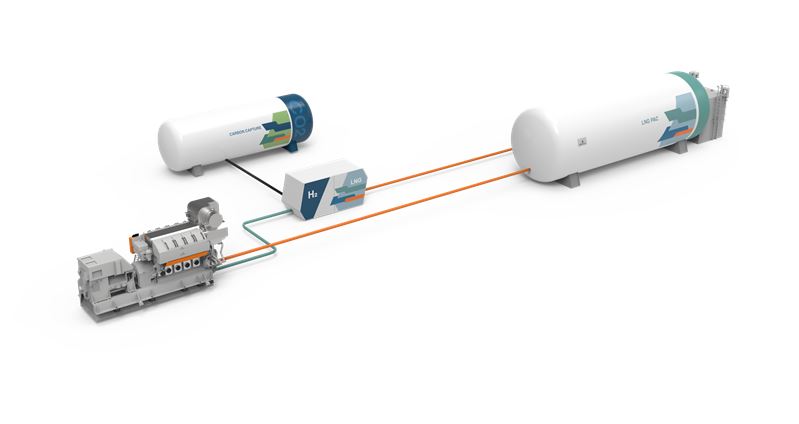Finland’s tech firm Wartsila and Italian classification society RINA are joining forces with four other companies to work on a new bunkering solution that would combine LNG with steam to produce hydrogen and CO2 on board a ship.
Wartsila and RINA would work with ABB, Metacon’s unit Helbio, the Liberian Registry, and an energy major, according to a Wartsila statement.
“The aim is to have a scalable and sustainable solution that will exceed the IMO 2050 target for a 70 percent reduction in carbon intensity without the need for an extensive infrastructure investment,” the statement said.
Current difficulties and cost considerations regarding the production, distribution, and onboard storage of hydrogen have so far limited the sector’s interest in its direct use as a marine fuel.
However, by producing hydrogen on a ship, and using readily available LNG, the solution becomes “far more viable and in a much faster time than would otherwise be possible.”
No need for hydrogen storage
The concept will combine LNG with steam to produce hydrogen and CO2.
Moreover, the produced hydrogen produced would go directly in a mix with natural gas in internal combustion engines or in fuel cells, thus eliminating the need for hydrogen storage, Wartsila said.
The system would liquefy CO2 using the cryogenic stream of LNG that would end as fuel anyway and later dispose it ashore for carbon storage.
Tankers can use the stored CO2 as inert gas during discharge, Wartsila said.
This innovative concept would support the marine sector’s gradual transition from LNG to hydrogen, without any major adjustments to a vessel’s onboard technologies, it said.
“Only LNG bunkering will be required and, by progressively increasing the production of hydrogen, the consumption of fossil methane and associated methane slip will be reduced at the same rate,” Wartsila said.
Under the project, Wartsila and ABB will support the application of hydrogen in powering internal combustion engines and fuel cells respectively, while Helbio will provide the technology and manufacturing of gas reformers.
RINA and the Liberian Registry will provide advice and guidance on the application of rules and regulations for novel concept alternative designs, based on Hazid/Hazop analyses, as well as specific rules for this kind of arrangement.

